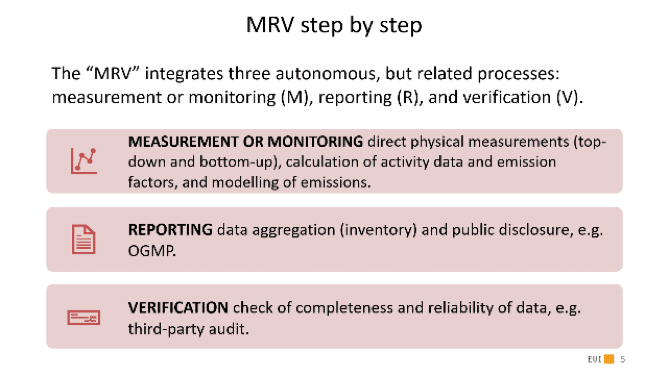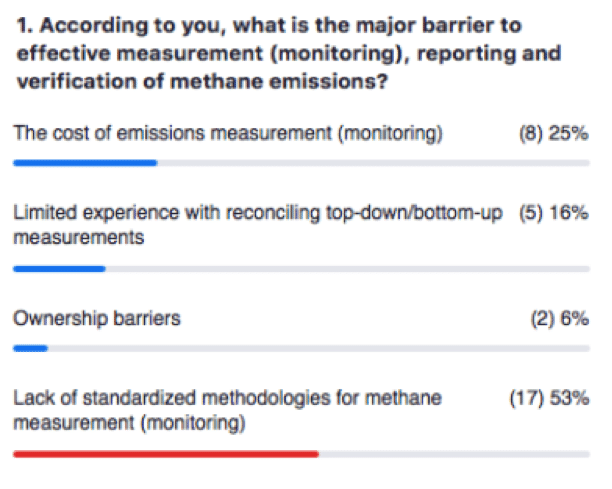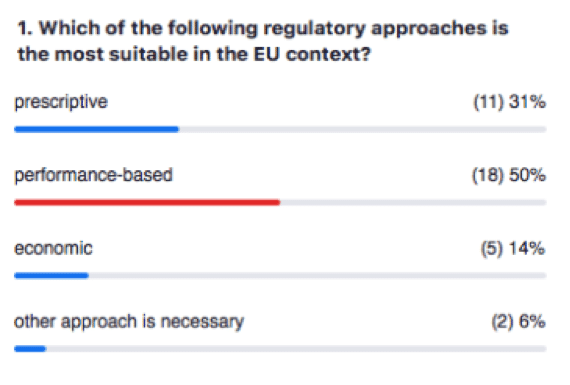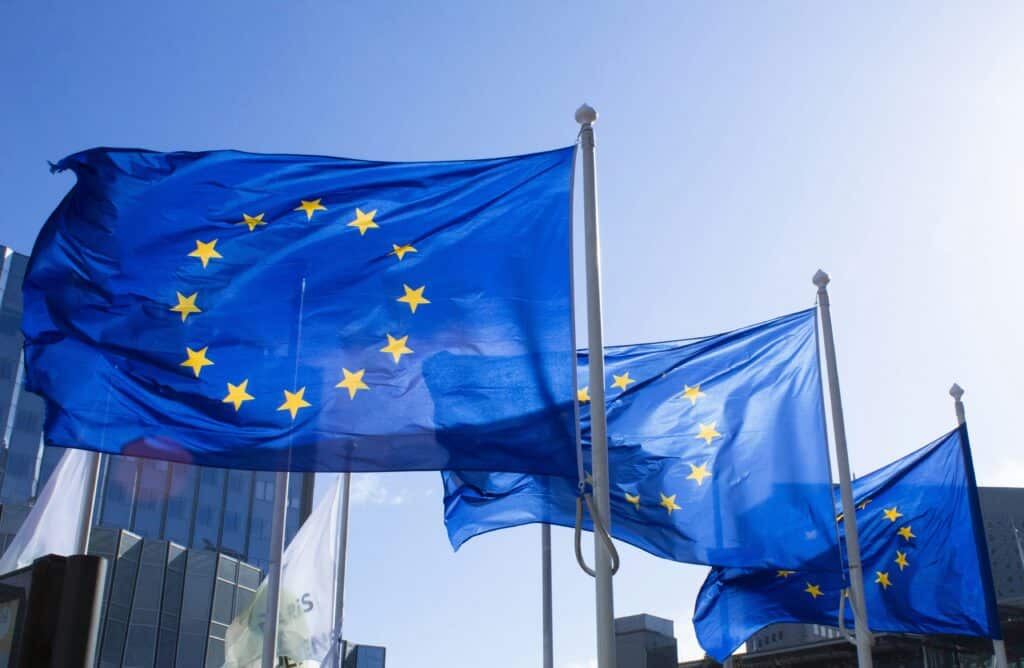Methane has to get measured before it gets managed
Highlights from the online event: Hard to measure. How can we improve monitoring of methane emissions?
The famous quote attributed to Peter Drucker, “[only] what gets measured, gets managed” may hold true not only for modern management but also for methane emissions reduction. The latest episode of the FSR Insights series focused on how measurement, reporting and verification (MRV) could contribute to methane emissions reduction. We also explored the barriers to the establishment of an effective MRV system.
The online event held on April 21 was moderated by prof. Leonardo Meeus (FSR) and involved a multidisciplinary panel of speakers: Kate Konschnik (Duke University), Lucija Muehlenbachs (University of Calgary), Paul Balcombe (Queen Mary University of London), and Maria Olczak (FSR and Queen Mary University of London).
During the webinar, Maria presented the early results of her PhD research on the barriers and opportunities to an effective MRV system for methane emissions under the supervision of Dr Balcombe.
Methane – the other greenhouse gas
Methane is a potent but short-lived greenhouse gas. In the 20-year time horizon, it is 84 times more potent than CO2, and it is responsible for 25% of the global warming we experience today. The reduction of methane emissions is necessary to achieve both 2030 and 2050 climate targets. However, currently available data on methane emissions are not robust. Due to the dispersed and intermittent nature of methane emissions, most emissions are estimated and not directly measured.
Last year, the EU Commission published the EU Methane Strategy. This year the Commission will publish a legislative proposal, which has two objectives: 1) to introduce a compulsory methane measurement, reporting and verification system for all energy-related methane emissions and 2) to introduce mitigation obligations on companies. The public consultations on the proposal will end on May 1.
What is MRV?
The slide below presents the key ingredients of an MRV based on Singh et al. (2016):

More accurate measurement and reporting of emissions offer many benefits: it helps establish baseline emissions, design and evaluate mitigation strategy, and increase the credibility and transparency of methane strategy. Credibility is vital for the oil and gas companies to maintain their social license to operate.
The barriers
However, the establishment of an MRV system for methane emissions is a challenging process. We asked our audience which barriers they consider as the most significant. The poll results show that the lack of standardised methodologies for methane measuring or monitoring is regarded as a critical barrier by our audience. Despite some best industry practices, there are different methodological approaches to methane measurement and quantification, as a direct physical measurement is not always possible.

Kate agreed with the audience’s choice for two primary reasons: first, it’s impossible to measure all dispersed emissions sources, and secondly, because for too long, we’ve relied on outdated emission estimates. Lucija, meanwhile, highlighted the ownership barrier and the discrepancy between the natural gas price for the companies (5 USD/Mcf) and the social cost of methane (at least 27 USD/Mcf). Paul pointed out both the lack of standardised methodology and the cost of measuring methane emissions, which continue to be a significant barrier.
Regulatory approaches
Measurement or monitoring, reporting, and verification are a basis for any mitigation efforts, but it is insufficient to reduce methane emissions effectively. We also asked the participants to comment on which regulatory approaches to methane mitigation they consider the most appropriate in the EU context, based on the list of regulatory approaches in the IEA’s Regulatory Roadmap (2021). Here are the results:

The discussion between the panellists focused on the economic approaches. Lucija pointed out that the economic instruments are considered the most cost-effective and have the advantage of creating additional incentives for technology innovation. Kate emphasised that this type of approach requires more accurate measurement and thus verification and suggested that with the gradual improvement of MRV, we could move on to more flexible regulatory regimes. Paul alluded to potential perverse incentives: the impact on the CO2 price resulting from the inclusion of methane emissions into the emissions trading system. In their remarks and in responses to audience questions, Kate and Paul agreed that a hybrid approach, employing different regulatory approaches, might be most effective.
Suggested readings:
Balcombe P, Speirs JF, Brandon NP, Hawkes AD et al., 2018, Methane emissions: choosing the right climate metric and time horizon, Environmental Science: Processes and Impacts, Vol: 20, Pages: 1323-1339, ISSN: 2050-7895.
Hausman C, and Muehlenbachs L, 2019, Price Regulation and Environmental Externalities: Evidence from Methane Leaks, Journal of the Association of Environmental and Resource Economists, 6(1): 73-109.
Konschnik K, and Jordaan SM, 2018, Reducing fugitive methane emissions from the North American oil and gas sector: a proposed science-policy framework, Climate Policy, 18:9, 1133-1151, DOI: 10.1080/14693062.2018.1427538
Methane emissions from LNG, project by Paul Balcombe (QMUL): slides 39-47 presented at the event: Corporate & Policy experiences related to quantification, mitigation & reporting of methane emissions: Lessons for the future on 22 February 2021.
Singh N, Finnegan J., and Levin K., 2016, MRV 101: Understanding Measurement, Reporting, and Verification of Climate Change Mitigation Working Paper. Washington DC: World Resources Institute.







